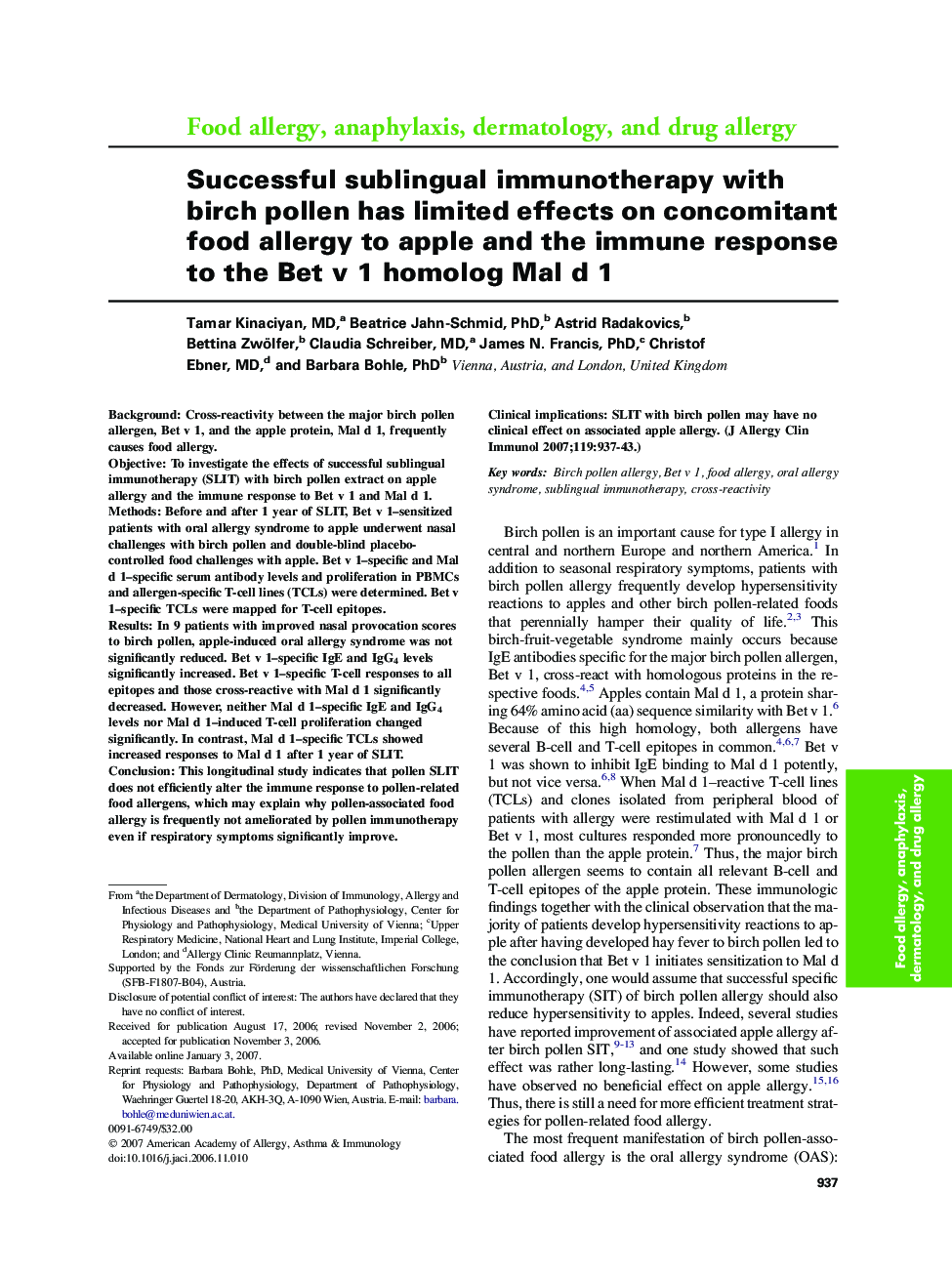| Article ID | Journal | Published Year | Pages | File Type |
|---|---|---|---|---|
| 3202036 | Journal of Allergy and Clinical Immunology | 2007 | 7 Pages |
BackgroundCross-reactivity between the major birch pollen allergen, Bet v 1, and the apple protein, Mal d 1, frequently causes food allergy.ObjectiveTo investigate the effects of successful sublingual immunotherapy (SLIT) with birch pollen extract on apple allergy and the immune response to Bet v 1 and Mal d 1.MethodsBefore and after 1 year of SLIT, Bet v 1–sensitized patients with oral allergy syndrome to apple underwent nasal challenges with birch pollen and double-blind placebo-controlled food challenges with apple. Bet v 1–specific and Mal d 1–specific serum antibody levels and proliferation in PBMCs and allergen-specific T-cell lines (TCLs) were determined. Bet v 1–specific TCLs were mapped for T-cell epitopes.ResultsIn 9 patients with improved nasal provocation scores to birch pollen, apple-induced oral allergy syndrome was not significantly reduced. Bet v 1–specific IgE and IgG4 levels significantly increased. Bet v 1–specific T-cell responses to all epitopes and those cross-reactive with Mal d 1 significantly decreased. However, neither Mal d 1–specific IgE and IgG4 levels nor Mal d 1–induced T-cell proliferation changed significantly. In contrast, Mal d 1–specific TCLs showed increased responses to Mal d 1 after 1 year of SLIT.ConclusionThis longitudinal study indicates that pollen SLIT does not efficiently alter the immune response to pollen-related food allergens, which may explain why pollen-associated food allergy is frequently not ameliorated by pollen immunotherapy even if respiratory symptoms significantly improve.Clinical implicationsSLIT with birch pollen may have no clinical effect on associated apple allergy.
